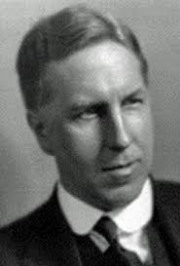Thomas Dunhill
Thomas Frederick Dunhill (1 February 1877 – 13 March 1946) was an English composer and writer on musical subjects. His compositions include a song cycle, The Wind among the Reeds, and an operetta, Tantivy Towers.
Thomas Dunhill was born in Hampstead, north London, on 1 February 1877. He showed early promise as a pianist and composer, and by the time he entered the Royal College of Music in 1893, aged just sixteen, he had already written a number of operettas in the style of Gilbert and Sullivan. In 1897 he won a scholarship to continue his studies with Charles Villiers Stanford for a further three years. Among his distinguished fellow students were Ralph Vaughan Williams, Gustav Holst, and his lifelong friend, John Ireland.
Appointed Professor at the Royal College of Music in 1905, Dunhill remained involved in music education all his life, teaching at Eton College, examining for the Associated Board, and adjudicating at regional music festivals. From 1907 to 1919 he was also active as a music promoter, being responsible for the Thomas Dunhill concerts in London, in which chamber music by English composers was prominently featured.
In addition to his 101 listed opus numbers, which range from chamber music, songs and instrumental pieces to symphonic scores and music-theatre, Dunhill composed a great number of short piano pieces intended to enrich the repertoire of students and amateur players of all ages. He had a particular skill for creating music which, though of only moderate technical difficulty, was firmly built on strong, engaging melodies characteristic of a subtle and profound musical sensibility. Many of these pieces were published in the 1920s and 30s, when they were much in demand by the Associated Board as examination material.
Though Dunhill was not himself a modernist, such was his talent – his ‘perfect workmanship’ as fellow composer Alec Rowley described it – that he was quite able to assimilate contemporary ideas into his own music when he wished. Refinement and impeccable craftsmanship are indeed the hallmarks of all that he wrote. He remained active as a composer until his death in 1946, and that talent for the theatre already demonstrated in his juvenilia achieved fruition in a number of operas written after the Great War. Most notable of these was the light opera Tantivy Towers, to a libretto by A. P. Herbert. It was produced to great acclaim at the Lyric Theatre, Hammersmith in January 1931, before transferring for an extended run at the New Theatre in St Martin’s Lane.














 My Wish List
My Wish List











